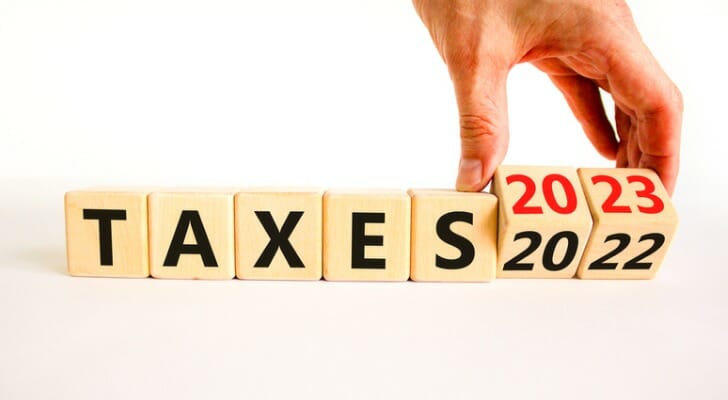Contrary to general belief, you cannot file your taxes on Jan. 1. Although April 15 is the standard deadline for the latest day you can file your taxes, the IRS also has deadlines for the earliest it begins accepting returns each year. You also can’t file your returns until you’ve received the necessary tax documents from employers or other parties you’ve worked with. They typically have until the end of January to send these out to you. If you need help with filing your taxes then you may want to consider working with an experienced financial advisor.
Tax Deadlines Can Change
First, it’s important to know that all tax deadlines change yearly. The IRS sets deadlines for all filings. For example, third-quarter estimated taxes are due September 15 for those who file them and all 1040s are due on April 15. Then the agency adjusts those deadlines every year based on factors such as weekends and holidays.
As a general rule, any tax deadline will be pushed ahead if it falls on a weekend, a government holiday or a day that post offices are closed. This means that actual tax deadlines change every year as weekends and holidays fall on different days. It also can lead to odd regional quirks. For example, tax deadlines can change from state to state based on local holidays like Massachusetts’ Patriots Day. Tax deadlines can move on an ad hoc basis if the weather shuts down the local post offices.
The upshot is that tax deadlines are just the starting point for how the IRS builds its annual schedule. They’re good to know, but always check each year’s schedule in advance. If you file a tax extension then it can also bring a separate date that occurs later in the year.
When Can You File Taxes?

You cannot file your taxes at the beginning of each year. Instead, you have to wait for two due dates, depending on how you plan to file your taxes for the year. You also cannot file your taxes until you’ve received all necessary tax documents, which employers have until the end of January to send to you. Here are the dates you need to know about filing.
Payer Tax Paperwork
First, you cannot prepare your taxes until you have the right paperwork. For most taxpayers, this means that you have to wait to receive any combination of W-2 and 1099 forms from companies that paid you over the year.
Businesses have until Jan. 31, 2026, to send you this paperwork. January 31 is the standard due date for payroll paperwork and it isn’t modified this year by any weekends or holidays. That said, as noted above, in extreme cases, winter weather can affect these deadlines.
Filing Dates
The IRS will begin accepting 2025 tax returns most likely sometime in late January 2026. At the time of writing the IRS had not yet announced the specific date for the start of tax season. Historically, it announces this information in early or mid-January.
The start of tax season is an exception to the IRS’ deadline rules. This date is not fixed and changes every year based on the tax agency’s overall sense of readiness. The IRS announces when it will begin accepting returns based on when it feels that its staff and computer systems are ready. It generally makes this call in January of the year that taxes are due. Most taxpayers have until April 15 to file their taxes in 2026.
What Happens If You File Early?
Very few taxpayers have the documents necessary to file their taxes in advance. The result is that you probably can’t send in a completed return before the IRS begins accepting taxes because you won’t have the paperwork to fill it out.
That said, if you are an exception to this rule, filing taxes before the start of tax season generally has no effect. The IRS will not accept this filing and you will need to file your taxes again after they begin accepting returns. It may send your return back as rejected, although if they do so you still should not expect to receive a reply in a timely fashion. Instead, it’s up to you as the taxpayer to refile your taxes at the appropriate time.
If you do file your taxes too early and if you don’t send in a second copy of your tax return after the start of tax season, the IRS will treat this as if you had not filed your taxes at all. You will likely receive the penalties appropriate to someone who made a good faith error, rather than someone who tried to intentionally evade their taxes, but you should still expect fines, penalties and interest.
Bottom Line

You cannot file your taxes until you receive any necessary payroll paperwork. In 2026, companies have until January 31 to send out forms such as W-2s and 1099s. You also cannot file your taxes until the IRS begins accepting them. In 2026, this will likely happen in late January, although at the time of writing the specific date had not yet been announced.
Tips for Tax Planning
- A good way to maximize your taxes is to fill them out right, if you’re not comfortable with them, you can enlist a financial advisor’s help. Finding a financial advisor doesn’t have to be hard. SmartAsset’s free tool matches you with vetted financial advisors who serve your area, and you can have a free introductory call with your advisor matches to decide which one you feel is right for you. If you’re ready to find an advisor who can help you achieve your financial goals, get started now.
- Need help filing your taxes? Consider our comprehensive guide on how to file your taxes.
Photo credit: ©iStock.com/staticmak1983, ©iStock.com/Traimak_Ivan, ©iStock.com/baona
